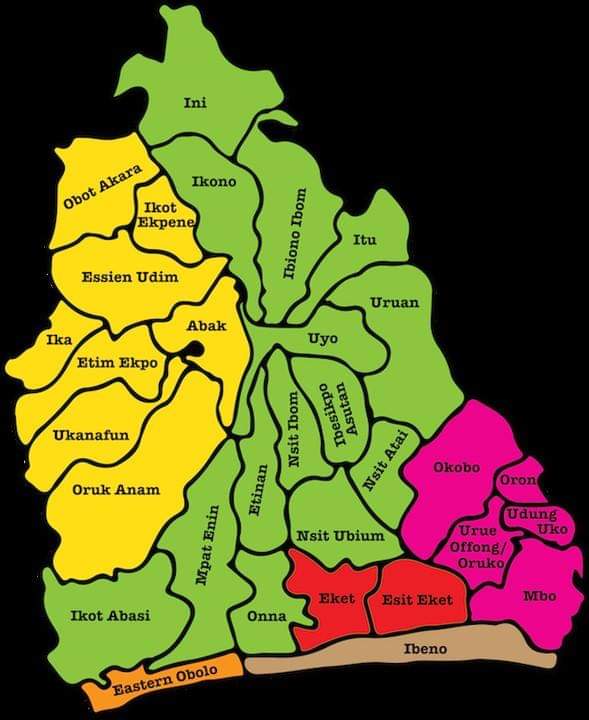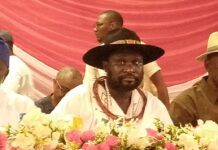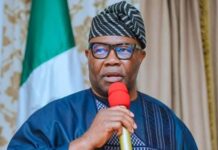By Emmanuel Ndon
We are barely one year into the second four years that we have in the life of the present administration in Akwa Ibom State. But just as we are trying to wriggle through the painful realities of the economic contortion, the political consciousness of the state appears to be stirred up towards the next general election in 2023.
The latest debate is hinged on political selection with a central focus on the choice of the next governor for the state when Udom Emmanuel would have wrapped up his four-year second term in 2023.
Prognosticating into 2023, would rather be a healthy debate since political leadership has a direct correlation with human development. In the same vein, good governance is a crucial prerequisite for growth and economic development – and all these come through human factors and actions – through political selection.
The debate in contest has to do with which ‘front’ should produce the next governor. Contestants are locked in a heated argument that the next Akwa Ibom governor should be a “homegrown” politician who has been nursed, raised and nurtured from ‘home’.
This argument stems from the nagging narrative that past governors who had been privileged to preside over the affairs of the state as Commanders-in-Chief are always bundled from outside the state and foisted on the people. The pros are of the opinion that these ‘people’, who do not live in the state, do not work here and perhaps, do not make significant contributions on the social and economic life of the state; don’t seem to understand the problems of the state and the worries of its people.
Since they do not seem to understand the problems of the people, they are seen as outsiders without the Midas touch to proffer, or in actual terms, bring solutions to such problems.
Even though the proponents of this idea have nudged up their quest to assume the top position of governor a few times before, they are yet to strongly criticize the leadership style nor achievements of the ‘stranger’ governors that have been, over the years, foisted on them. And quite truly so, these ‘intruders’ have been the only ones who occupy the pedestal spot since the return of democracy in 1999.
From the narrative, the list includes Obong (Arc.) Victor Attah (1999 – 2007), his successor and former commissioner, Chief Godswill Akpabio (2007 – 2015); as well as incumbent Mr. Udom Emmanuel who is seeing off his second term.
Most people have argued that prior to 1999, during General Ibrahim Babangida’s skewed transition years, Obong Akpan Isemin was also drafted from Lagos to become the first civilian governor of the state in 1992.
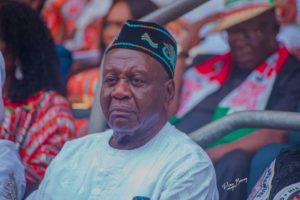 Obong Victor Attah, Governor of Akwa Ibom state 1999 – 2007
Obong Victor Attah, Governor of Akwa Ibom state 1999 – 2007
Thus, the prevailing scenario sums up the thinking that only “returnees” have held the mantle of leadership in the state since it was created from Cross River State in 1987.
Torn between homegrown and non – resident politicians, it is difficult to understand whether good governance and overall development of lives of the people, is at the centre of the debate. The homegrown politicians need to come clear on their purpose and motive to wrest power from the so called nonresidents. Over the years they have remained part and parcel of the vested interest and seem not to have any parallel idea or programme that can make the difference between what had been and what is currently going on.
They have also become one of the largest beneficiaries of the government at the expense of the electorates.
Apparently arising from the absence of a clear-cut proposal, the cons have dismissed such a narrative describing it as limiting the state and capable of robbing it of enlightened minds that have traversed the length and breadth of the world to garner ideas in both leadership and development models.
One commentator had described the idea as “defeatist and unconstitutional”, saying it is an antic by those he described as professional politicians who have been spoonfed by resources of the state over the years. Still from the opposing camp, someone has said that “Akwa Ibom State is not a village but a competitive location in the global space where its leader must be able to hunt with the lions and hyenas of the global socio-economic and political space”, with an opinion that for the purpose of safeguarding peaceful coexistence, the state should only continue to accept the zoning structure along senatorial districts.
As this piece was being put through, one journalist had posted on his Facebook page a poser he credited to a front line opposition leader in the state : “When will the local man be the governor of Akwa Ibom State?”
Interestingly, the reactions from the post appears to be the feelings and thinking of the majority of people of the state over the years . Whether they are right or not, their responses are as retorting as deliberate : “A local man can only be a local government chairman”; “Is Akwa Ibom state a local territory for local men?”.
And, of course, another commentator whom I suspect to be a journalist also quipped : “When did we start liking local things?
Our appetite for foreign things is unquenchable”; yet again, the last comment (as at when I read the post) was a question on its own, “How can a ‘local man’ be governor?”
Achieving good governance, to a large extent, depends on good leadership yet, the choice of leaders has remained a complex problem. Scholars have argued that to achieve economic development and growth, emphasis has to be given to the role of institutions that shape politicians’ incentives. Another key element of quality government is to have an honest, competent political class.
It is difficult to say at this point whether such exist in the state. Both homegrown and nonresident politicians emanate from the same political class with vested interest on the resources of the state. This in itself has made it extremely difficult to select a competent, credible politician that can be generally acceptable to the people.
One author had noted that the process to select good politicians (or to avoid selecting bad ones ), is not well understood. The economic literature on political selection suggests that competitive election, informative media and adequate rewards from office, play a part on improving the quality of politicians.
But the homegrown politicians must also come to terms with the fact that beyond the level of agitation, political parties are central in the selection process. “They do not only train and recruit politicians, but also nominate the candidates able to participate in elections. By controlling the entry to the political arena, they effectively define the set of politicians from which voters can choose”. This probably is the dilemma of the electorates at every election. The ordinary voter is often denied the right to select or choose his own candidate for any election, he is only compelled (as it is often the case with most parties), to vote for someone who has been foisted on him by the party.
Worst of all, most political parties do not undergo democratic means of candidates’ selection; they only “nominate” their choice candidate as opposed to open or direct primaries.
Other than political parties, the next Akwa Ibom governor may also be determined by the existing School of Thoughts which came into being in 2007. Within the state, there are two School of Thoughts named and fashioned after two former governors – Obong Victor Attah and Godswill Akpabio. Most politicians pitch tent with either of them. Analysts have observed that the Attah school of thought represents great vision, development and patriotism.
They point to the foundational exploits of the architect in developing the Uyo capital city master plan which gave rise to expansion through Ring roads; Ibom Hotel and Golf Course, Power plant, investment in Econet, Science park, Airport, University of Technology, etc. as flagship projects which spurred up progress and development. His struggle for resource control and the benefits that accrued thereafter are also phenomenal. These and many more have endeared a large followership towards Attah and have come to earn him the nickname as “The Father of modern Akwa Ibom”.
Similarly, Chief Akpabio’s school of thought had come to be identified with violence. Although he did some landmark projects like the stadium, his tenure was largely characterized by kidnappings and the administration seemed to adopt a Machiavellian approach. The splurge for which his administration was also known, along with his attendant “generosity” had also endeared people to his side. This, in equal measure, is also believed to account largely for the loss of All Progressives Congress (APC) in the state during the last general elections.
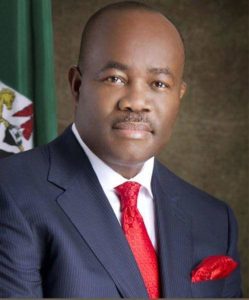 Former governor of Akwa Ibom state, Senator Godswill Akpabio
Former governor of Akwa Ibom state, Senator Godswill Akpabio
It is believed by some commentators that a well respected and accomplished Akwa Ibom indigene presently working in a multinational company in Lagos, is nursing gubernatorial ambition belongs to the Attah School of Thought. Most analysts have argued that he had been part of the success story that the Attah administration had been, although, behind the scene.
But whichever direction the pendulum will swing, it is certain that the struggle for the future of Akwa Ibom State is between these two schools of thought. In any case, let the debate continue.



